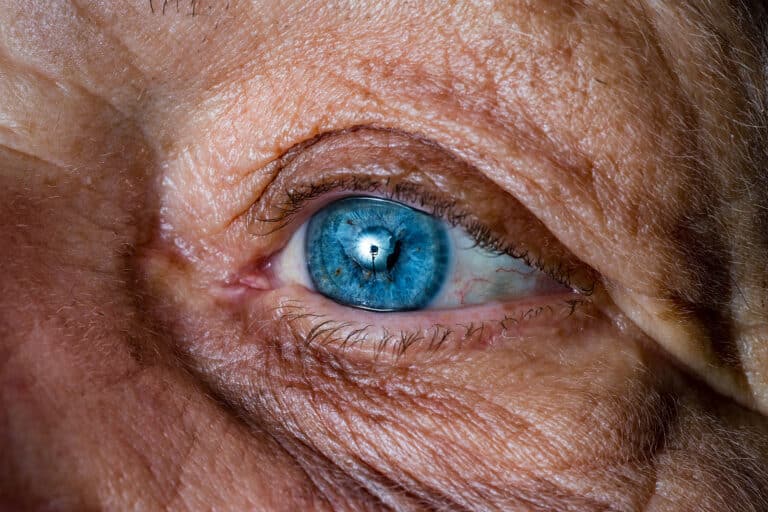
Vision changes are one of the many changes that may affect seniors as they age. It is also one of the scarier changes, as the possibility of losing one’s sight carries the concern that seniors might be unable to live independently. However, with support from loved ones and senior home care, seniors can work through changes related to vision loss and even Macular Degeneration. This age-related eye condition affects a significant number of seniors.
What is Macular Degeneration?
Macular Degeneration is a disorder that affects the macula, the retina region responsible for central vision. Over time the macula can degrade, leading to a loss of visual acuity and making it more difficult to carry out routine tasks such as reading, driving, and recognizing faces.
What Are the Two Types of Age-Related Macular Degeneration?
The most prevalent type of Macular Degeneration is known as Dry Macular Degeneration. It is distinguished by the accumulation of drusen, which are little yellow deposits that grow in the retina.
These deposits can potentially create a slow and steady loss of eyesight over time. Dry Macular Degeneration and Wet Macular Degeneration are the two forms this condition can take.
On the other hand, Wet Macular Degeneration affects a smaller percentage of seniors but is more severe. It is caused by the formation of aberrant blood vessels in the retina, which, if they burst, can cause severe and quick vision loss.
Who is at Risk For Macular Degeneration?
Macular degeneration is more likely to occur in seniors than in younger people. Other risk factors include:
- Having a family history of the disease
- Smoking cigarettes
- Being overweight
- Having high blood pressure
- Eating a diet deficient in antioxidants and omega-3 fatty acids
It is essential to make an appointment with an ophthalmologist as soon as possible if a loved one is showing signs of macular degeneration. When monitored by senior home care, signs might be more noticeable. Additionally, maintaining all regularly scheduled vision appointments is key.
Signs of Macular Degeneration
Signs of Macular Degeneration include:
- Blurred vision
- Distortion of straight lines
- A blind spot in the middle of your field of vision
The disease’s progression can be slowed down, and vision can be preserved with the help of early detection and therapy.
Tips for Preventing Macular Degeneration
There is more than one way to treat Macular Degeneration. The treatment chosen will vary according to the type and degree of the illness. Unfortunately, there is currently no treatment that will reverse the effects. However, alterations to one’s lifestyle may help reduce the disease’s progression.
Among these are maintaining a healthy weight, giving up bad habits like smoking, and protecting one’s eyes from the sun’s potentially damaging ultraviolet radiation by wearing sunglasses. Seniors home care professionals can assist seniors in adjusting to lifestyle changes by helping with meal planning and ensuring that seniors are active during the day.
For early diagnosis and treatment, it is essential to have a solid understanding of Macular Degeneration. Maintaining a healthy lifestyle and attending frequent checkups at the eye doctor are two steps seniors can take to lower their likelihood of having the condition. With the help of loved ones and senior home care, seniors have the chance to manage this vision change in stride.
If you or an aging loved one are considering hiring Senior Home Care in Greenville, SC, contact Heart of the Carolinas Home Care at 864-991-3116. Providing Home Care Services in Greenville, Simpsonville, Greer, Anderson, Spartanburg, Mauldin, Seneca, Laurens, Charleston, Columbia and the surrounding area.
Source 1 / Source 2 / Source 3
- Is it Possible to Prevent Family Caregiver Burnout? - April 25, 2025
- Home Care Assistance Helps Seniors After A Fall - April 9, 2025
- How Home Care Supports Seniors Who Are Hard of Hearing - March 28, 2025

